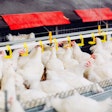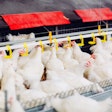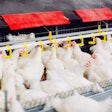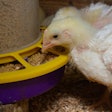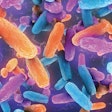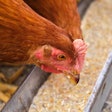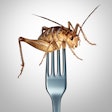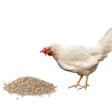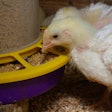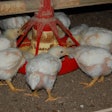Dr. Ajay Awati, a senior scientist at Danisco Animal Nutrition, the animal nutrition division of DuPont Industrial Biosciences, will present two talks designed to help producers in Asia improve profitability and food safety through healthy nutrition.
On March 10 at 1.50 p.m. Awati, a qualified vet and doctor of Animal Sciences, will pose the question “Do enzymes play a role in gut health?” at Avian Gut Health 2015. His presentation will examine:
•The role that feed additives - and feed enzymes in particular - have played in achieving healthy, profitable performance through improved feed conversion since the 1960s.
•Recent research that shows the negative impact that undigested nutrients have, not only on the rate at which the bird grows, but also in terms of undesirable shifts in its gut microbiota.
•The negative effect of production stress on gut microbiota balance and how feed enzymes can address this imbalance.
•The latest evidence indicating that feed enzymes can not only be used to reduce the amount of undigested substrate in the gut but also to deliver profitability benefits that compare favorably with those achieved through in-feed antibiotic application.
Using feed additives such as enzymes to reduce dependence on in feed antibiotics is also the subject of Awati’s second talk at The Pork Production Summit, to be held at noon on March 11 at VIV Asia. In this presentation, entitled “Effects of feed additives beyond performance: vital pieces of the profitability jigsaw in an era of reduced antibiotic growth promoter usage,” he will again look at the impact of diet, production stress and other factors on gut health. He will then point to new research conducted in Asia that shows how feed enzymes - in combination with other additives such as essential oils - can enhance producer profitability while reducing dependence on in-feed antibiotics.
Awati commented: “The role of enzymes and other feed additives in providing a viable replacement for in-feed antibiotics without impacting healthy growth performance has been acknowledged by Klassing, Choct, Pluske and others. In my talks, I will uncover new research that shows how combinations of enzymes and other feed additives can increase profitability while also improving food safety and quality with reduced use of antibiotics.”








